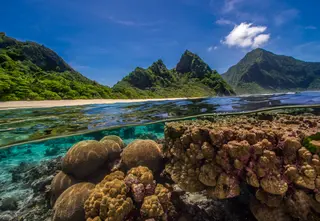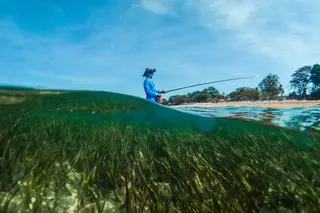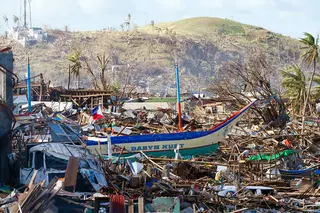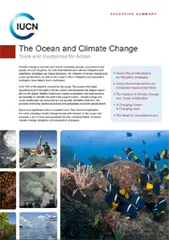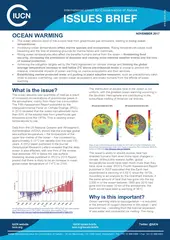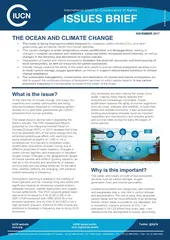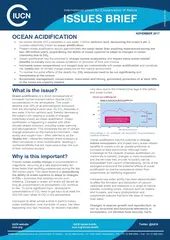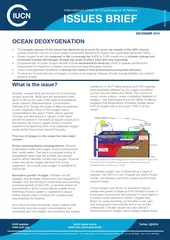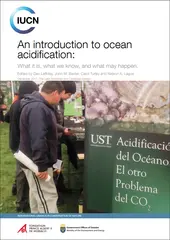IUCN's related work on oceans
Climate change is severely and rapidly impacting species, ecosystems and people around the globe. Climate change stressors are jeopardizing food security, shoreline protection, the provision of income, livelihood sources and sustainable economic development.
IUCN's work on climate change is focused on:
- developing and communicating the science of climate change;
- promoting policies that can reduce emissions and minimise associated impacts;
- and advocating nature-based solutions through the protection and restoration of coastal ecosystems
Blue Carbon and Ecosystem-based adaptation are good illustrations of nature-based solutions that IUCN has implemented successfully and strongly recommends.
IUCN also seeks to address climate change through:
- mitigation measures supported by innovative finance mechanisms,
- projects on the ground to develop sustainable businesses with private investor appeal,
- support the broader finance and conservation community with valuable lessons on investment opportunities,
- investment in coastal protection and management, which brings in turn tangible benefits to local communities that are often heavily dependent on the health and abundance of the marine resources.
